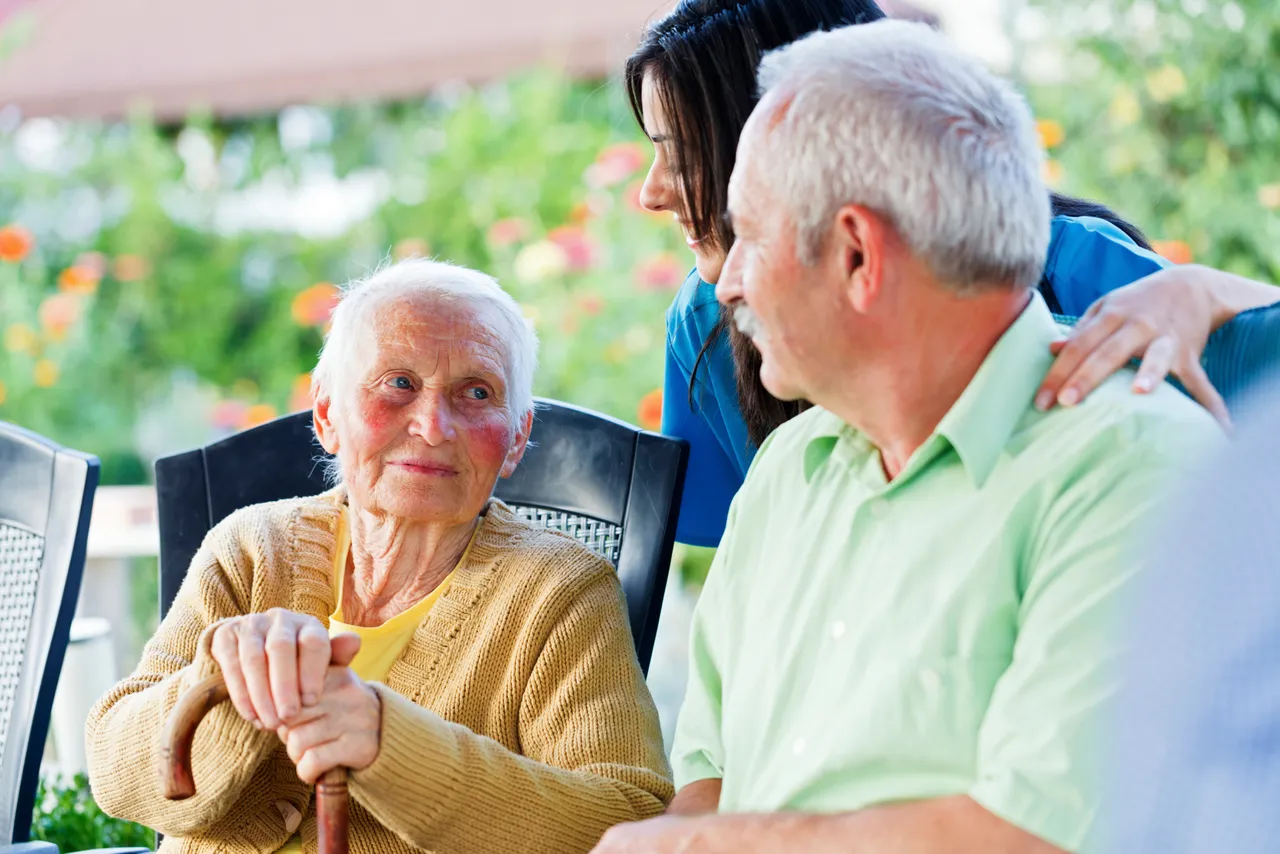
In a previous blog post, I mentioned the global aging trends and why NOW is the time to consider assisted living as a strong real estate investment vehicle that can accelerate your growth toward financial freedom.
In this post, I will help you learn what assisted living really is, because when I mention it to friends, family, and even potential investors, there is a lot of confusion.
There is good reason why so many people are confused...
Denial!
I personally don't want to admit that I am aging. I don't want to see my body start breaking down on me. You can always trade in your old clunker of a vehicle in and get a new one, but that's not possible (yet) with our bodies.
But I'm still healthy and strong, not too far from my prime.
What's more tough for me to admit right now is that my parents and parents-in-law are at that very point where they either can't take care of themselves or are quickly approaching the need for assistance.
So what does assistance mean, exactly?
Maybe mom's vision is getting so bad she can no longer drive. If that's the case, there are a lot of normal, everyday life tasks that she can no longer do:
- Shopping for groceries
- Meeting a friend for lunch
- Attending spiritual services and community events
- Obviously everyone needs to eat, and somebody has to take up the task of shopping. At this stage, usually a close family member pitches in to help.
The second and third items in that list might not seem so important, until you dig a little deeper.
We humans are extremely social creatures. We get much of our purpose and meaning in life from connection to our families, our careers, and our communities. As we age, our social circles naturally begin to shrink.
When the kids grow up and move out... we often lose the daily connection with them, but it's also possible that we lose contact with the parents of our kids' schoolmates and friends.
And though it's tough to admit, as our parents and grandparents get older, many of their friends pass away.
In the United States and Europe, we already have much more fragmented families than in other cultures. We are mobile. We go where the jobs are. Leaving the nest used to mean leaving the house and moving across town. Now it often means going to the other side of the country.
But as other countries continue to modernize, they too will see this fragmentation trend more and more.
Back to assistance...
Now that you helped out your aging family members by bringing them groceries, you have to ask a few more questions... because it's just a matter of time...
- Is it safe for mom to cook on the stove?
- Will she remember to turn the gas off?
- Does she have the energy or strength to do the laundry on a regular basis?
- Or clean the house?
- Dad is stubborn about maintaining the yard, but he has already fallen once. If he keeps at it, won't he eventually hurt himself badly?
Other basics that fall under "assisted living" are showering/bathing, brushing teeth, taking medication, going to the toilet, combing hair, brushing teeth... the list goes on.
Healthy, young people take these activities of daily living for granted.
But just as we needed help with all this as infants, there comes a time in many elders lives where they come full circle and need this help again.
There are few answers to the need for assistance:
- You can hire a caregiver to visit your elders everyday at their existing home.
- You can be that daily caregiver, but if you have a career, now you've got two.
- You can build an addition on your home and have mom or dad move in with you, but you still have the issue of having an additional full-time job.
- You can find an assisted living location that houses many elders and has caregiving staff there around the clock, 24/7.
- The latter choice not only solves the need for care, but it also addresses your loved one's dwindling social circle of people who "get them".
Being around grandchildren can inject energy and meaning into an elder's life. But at the stage where elders need this level of assistance, the grandchildren are often grown up as well. That means moving dad in with his eldest son, at best, might give him contact with two people.
Assisted living gives elders contact with caregivers of various ages and backgrounds...Variety...
And gives them connection with multiple people of their own generation... Familiarity.
That, in a nutshell, is assisted living....
-- It helps elders get the care they need.
-- It helps reduce the burden of care for the families with elders who need assistance.
And...
-- It helps elders maintain a sense of community and connection in a world where change happens so rapidly they have begun to feel adrift.
In a future post, I'll cover some differences between the stages of senior living, from retirement communities, independent living, assisted living, skilled nursing, and continuous care communities.
Plus, I'll also describe the differences between large, commercial assisted living operations and smaller, more intimate residential assisted living communities.